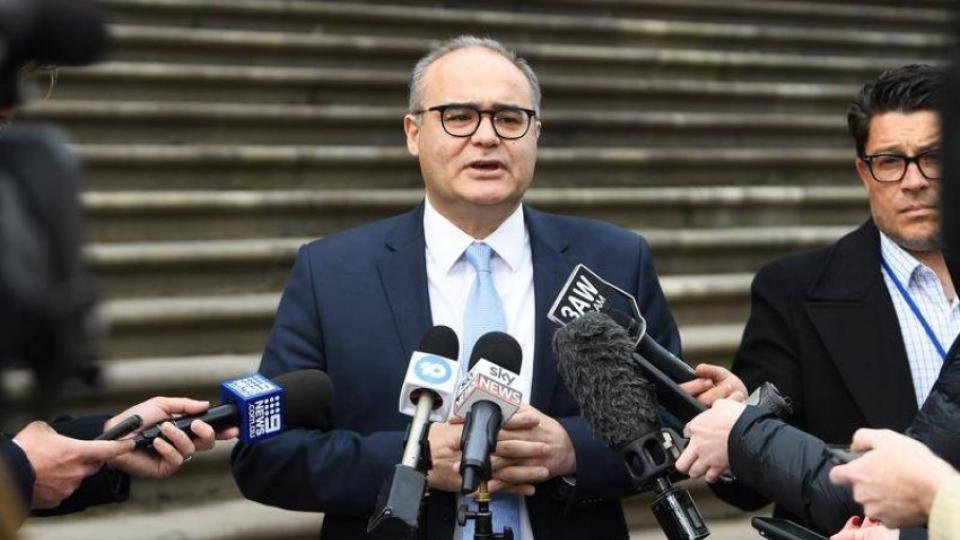Somyurek and Labor’s stinking mess exposed

Victorian Premier Daniel Andrews and other Labor leaders are feigning surprise at the revelations coming from the sting on right-wing power broker and sacked state minister Adem Somyurek — for which he has now vowed to take revenge.
But this cynical internal process is not new for Labor, or the Liberals for that matter.
I am not (nor ever have been) a member of the Labor Party, and am not close to its social or political circles. Yet, even I have heard rumours of Somyurek’s role as a right-wing numbers man.
No doubt, many in the party will be relieved that the secret recordings made in federal MP Anthony Byrne's Melbourne electorate office have provided evidence of Somyurek’s branch stacking operation because it eliminates a factional rival.
That is a plausible explanation for why Labor’s response has been to centralise power in the hands of its National Executive rather than empower rank-and-file members to deal with the corruption.
The latest evidence of the internal abuses add to a long history of branch stacking in the Labor Party — by all factions. The difference though is that in the 1960s and ’70s, there were more often than not ideological issues at stake, such as when the left opposed the anti-communist wing in the party. Then, there was a genuine left in the Labor Party.
Now, factions’ “right” and “left” tags have little ideological meaning: left and right unions voted for Bill Shorten’s cruel and dangerous asylum seeker boat turn-back policy at the ALP national conference in the lead-up to the previous federal election. In Australia, bipartisanship on most of the critical economic and social issues has led to some describing the ALP as “Another Liberal Party”.
These days, the factions are simply jobs clubs to facilitate preselection or to become delegates for state and national conferences. If an ambitious person who aspires to be an MP can’t get preselection in one faction, they hop over to a different one.
The factional system exerts such tight control inside the party that when a faction makes a deal with another faction, faction members have to show their conference voting cards to the faction leaders to prove that they have voted the right way.
But factional branch stacking doesn’t just happen in Victoria: they have been a key part of the internal workings of the Labor Party in just about every state for decades.
Labor doesn’t have a monopoly on this sordid practice though: the Liberal Party’s unofficial factions stack as well.
But branch stacking is a symptom, rather than the cause, of the problems within pro-capitalist parties. While it is possible to change rules to make it harder to stack branches, it won’t be eliminated while internal democracy and accountability are missing.
Most branch stackers make their start in student politics, either in the Labor or the Liberal clubs: This is where Tony Abbott, Peter Costello, Julia Gillard and Gareth Evans started. The next level of training is generally the business world and right-wing think tanks, but it can also take place in other places including legal outfits and some union offices.
Aspiring political operators in the major parties learn that, if they want to get anywhere, they must sign up to a type of politics that is not based on political principles, but rather solely on power. That includes unconscionable preference deals, branch stacking, lying with a straight face to people who know you are lying and treating voters in an arrogantly superior and disdainful way.
This enables such politicians to stare down the climate crisis, to support Centrelink’s rotten-to-the-core Robodebt system — which drove some people to commit suicide — and a policy on refugees which has destroyed thousands of lives.
This power-broker style politics is necessary for capitalism, especially in its neoliberal phase. This is because the system only survives by robbing the wealth created by workers and transferring it to the richest 1%. Cutting the corporate tax rate, penalising workers for taking industrial action and privatising public services assists this grotesque transfer of wealth.
Capitalism needs parties and politicians capable of selling damaging anti-working class policies to people.
Anthony Albanese might have “zero tolerance” for branch stacking, but since becoming leader he has stood shoulder to shoulder with the Coalition on critical policy issues. Labor may well have been formed by trade union officials and sections of the intelligentsia more than a century ago, but today it acts as a systematic agent for capitalist rule in the labour movement. Its abandonment of much of its historical social-democratic program to ameliorate the worst effects of capitalism means that any internal clean-up is purely window dressing.
[Sue Bolton is a member of the Socialist Alliance.]